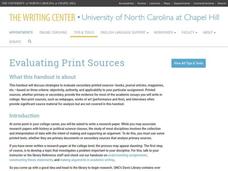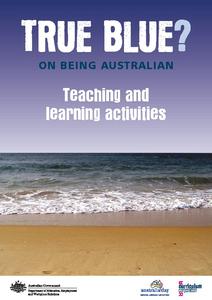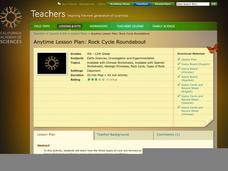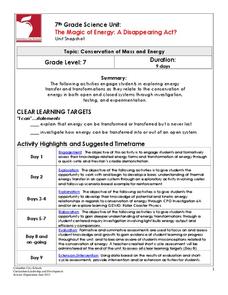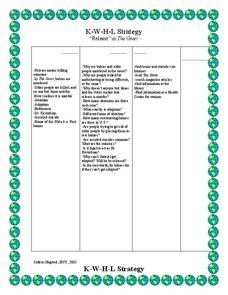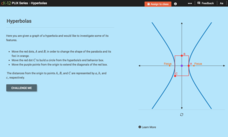Science 4 Inquiry
Monster Mash-Up of Genetics
It's alive! Young mad scientists create monsters as they explore the probabilities of genetic traits during a well-structured inquiry lesson. Pairs travel from station to station, rolling the dice and adding traits to their creations as...
Science 4 Inquiry
The Impact of the Sun and Moon on Tides
In 150 BC, Seleucus of Seleucia theorized that the moon causes the tides. Scholars learn about what causes tides by studying the interactions of gravity between the sun, moon, and Earth. They use technology to formalize otherwise...
Science 4 Inquiry
At the Top: A Bald Eagle's Diet
Bald eagles are opportunistic predators and eat fish as well as raccoons and other mammals. Pupils learn about bald eagle diets through a simple simulation and videos. They collect and analyze data to understand the adaptability of this...
University of North Carolina
Evaluating Print Sources
Not all sources are created equal, so how do you evaluate them? Writers learn how to evaluate print sources based on elements such as audience, tone, and argument in the sixth handout of 24 in the Writing the Paper series from the...
University of North Carolina
Literature (Fiction)
An informative installment of the Writing for Specific Fields series helps readers learn how to interpret and write about fiction. The website details nine easy steps for writing a literary analysis—a useful method for all readers!
Core Knowledge Foundation
Early American Civilizations Tell It Again!™ Read-Aloud Anthology
Bridge subjects ancient history and English language arts together with a unit all about the Maya, Aztec, and Inca civilizations. Eleven lessons begin with a read-aloud followed by a whole-class discussion in preparation for practice by...
Curated OER
Place Value and Rounding
Use rounding mountains and number lines to learn how to round numbers and learn place value. Learners will use a worksheet to help them round numbers. They will play a game called "Place Value Match-up" to help with skill practice. All...
National Australia Day Council
True Blue? On Being Australian
Who or what is an Australian? Discover a plethora of student-centered, engaging activity ideas on the question of Australian identity, organized according to five major themes: people, symbols, place, sport, and words.
Facebook
Passwords
Creating a strong password is easy ... but remembering it is a different story! Cyber scholars analyze the methods used by hackers to gain access to private information through a digital citizenship lesson. After learning more about...
Curated OER
2nd Grade - Act. 25: Creature Creation
Create a creature using some of the characteristics of a real animal. Second graders will read a book from the "Froggy," series by Johnathan London to learn about the characteristics of frogs. After discussing and recording various...
Curated OER
Using Process Drama in the Language Arts Classroom
Using the tools of process drama to create authentic learning experiences for students.
California Academy of Science
Rock Cycle Roundabout
After a basic introduction to the rock cycle and the three main types of rocks, young geologists can deepen their understanding of how rocks change through a fun learning game. Based on the characteristics and events shared by a reader,...
Columbus City Schools
The Magic of Energy: A Disappearing Act?
Using the 5E method for teaching about kinetic energy, potential energy, and conservation of energy, this two-week unit with many videos and possible extensions is sure to keep pupils engaged as they are learning.
Curated OER
Applying KWL Guides to Sources with Elementary Students
What is a KWL chart? Here is a well thought-out lesson that has learners use KWL charts to gain historical perspective. Your class examines primary sources about historical events and identifies what they know, want to know, and,...
Curated OER
The Giver: K-W-H-L Strategy
Explore the theme of release and death in Lois Lowry's The Giver with a K-W-H-L chart. After noting what they already know, kids come up with a list of questions about topics that they would like to know about, as well as how they will...
Fairbanks North Star Borough School District
Eric Carle Mural
Inspire first grade artists to learn about abstract and realistic art while reading Eric Carle's Where are you Going? To See My Friend. Young artists design and make a mural collage by tearing shapes of paper while comparing English and...
CK-12 Foundation
Hyperbolas
Hyperbolas—practice thinking outside of the box. Pupils alter the end behavior box to create various graphs of hyperbolas. They determine formulas to find the distance from the origin to the foci. Using that information, scholars...
iCivics
NewsFeed Defenders
How can people learn to spot viral deception? Players do just that with the NewsFeed Defenders media literacy game. Scholars choose avatars and the focus of their news feeds: student life, health and wellness, or sports and...
Curated OER
The Water Cycle (Evaporation, Condensation, Precipitation)
The 3 steps of the water cycle, evaporation, condensation, and precipitation, are the focus of this lesson. After a neat demonstration of rain using hot water, a pie tin, and ice cubes, young scientists observe and discuss the elements...
Curated OER
Salt of the Earth: A Caddo Industry in Arkansas
Middle schoolers explore the history of the Caddo Salt Industry found in Arkansas. Along with learning about how salt deposits formed in Arkansas, learners study the process of salt production and how valuable salt is as a natural...
Curated OER
Social Studies: Bridging the Gap Between Cultures
Have you special education class examine multiculturalism. By exploring the cultures of Israel and Greece, they discover the holidays, cuisine, arts, andgeography of the countries. During this twelve-week unit, students develop a...
Curated OER
Recycling: Responsible Behaviors
Take the time to teach learners with moderate disabilities how to identify recyclable materials. They learn how to recycle as a mode of social responsibility and community involvement. They practice identifying and sorting recyclable...
Curated OER
Balloon Bop: Skip Counting
Practice counting in patterns and skip counting by 1, 5, and 10. Once the patterns have been taught, teams of 5 or 6 learners -- holding hands in circles -- skip count each time they collectively bounce a balloon up into the air. Early...
Center for Civic Education
Constitution Day Rap
Engage your class while learning about the US Constitution with this fun primary grade social studies lesson. After viewing a picture of the US Constitution, young learners piece together a US flag using stars and stripes with facts...
Other popular searches
- Science Learning Centers
- Math Learning Centers
- Hands on Learning Centers
- Measurement Learning Centers
- Space Learning Centers
- Literacy Learning Centers
- Alphabet Learning Centers
- Ideas for Learning Centers
- Electricity Learning Centers
- Hand Math Learning Centers
- Easy Math Learning Centers
- Planet Learning Centers





